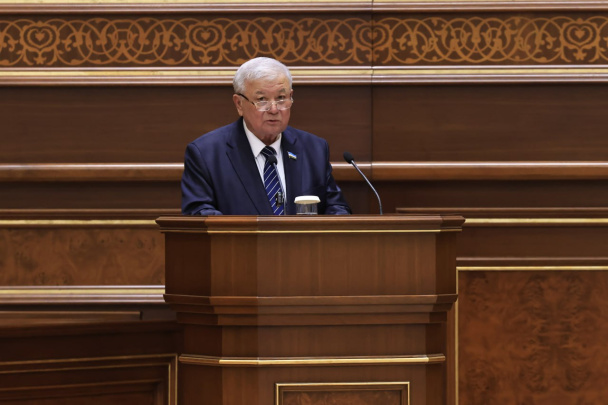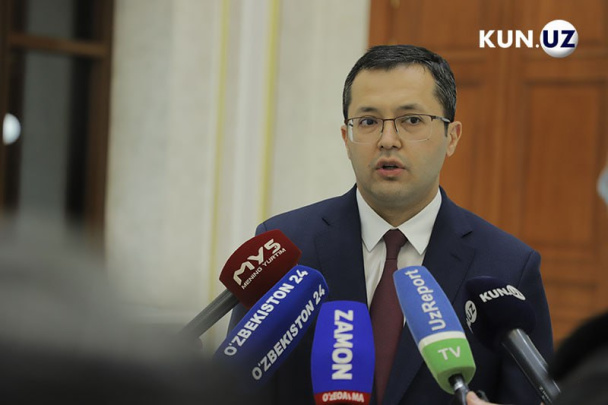In some banks in Uzbekistan, there is a shortage of cash currency. According to Kun.uz correspondent, Orient Finance Bank has set a limit for receiving more than $2,000 in cash at its branches. It is not clear what caused this.
Also, people are unable to withdraw a large amount of cash currency at Ziraat Bank. According to the Kun.uz source, several branches of Hamkorbank have restrictions on receiving large amounts of cash foreign currency.
The press service of Ipoteka bank informed Kun.uz that the bank has not set a limit for buying foreign currency.
So far, no bank has officially commented on this situation.
“Volume of speculative transfers reached an unprecedented level”
Economist Otabek Bakirov writes that the profitability of the foreign currency in “black market” has reached 50% in recent days.
“Uzbekistan is not excluded from the realities that are happening in Russia. On September 29-30, the non-cash ratio for one dollar decreased to 53 rubles, naturally, the amount of speculative transfers to Uzbekistan reached an unprecedented level last weekend and at the beginning of this week.
As of this morning, VTB Bank in Russia is asking for 78.5 rubles per cash dollar, Sberbank – 78 rubles, Alfa-bank – 77 rubles. On Thursday and Friday, the profitability of the transaction transferred to Uzbekistan without cash and delivered to Russia with cash withdrawal is 50%. It is a 50-percent profit in just three days. Neither drug business, nor human trafficking bring so much income,” he says.
Bakirov added that Uzbek banks are facing serious difficulties in providing their customers with cash foreign currency.
“As social networks report, it is possible that some banks are not reacting adequately and quickly to the calls that have arisen. Yes, in some cases, there may be bankers who join the same front as speculators, trying to take advantage of the deficit conditions that have arisen.
In such circumstances, it is natural that the system focuses all its efforts on providing cash foreign currency or cash soums to labor migrants and their transfer practices, and it has to be tolerated that they evaluate it differently.
This is not the first time that the situation with the cash foreign currency has become complicated, it happened in April, May and June. Every time such a situation was encountered, a solution was found, the situation was stabilized. It will be the same this time as well,” the economist says.
It should be recalled that in June and July there was a foreign currency shortage in the banks. Experts explained that the ruble rate continued to strengthen rapidly against the national currencies of the Central Asian countries.
Also, the Central Bank reported that the sharp increase in remittances may be due to the fact that Kyrgyz and Tajik immigrants working in Russia and Kazakhstan are transferring money to Uzbekistan. The regulator cited the ban and restrictions on giving money transfers in dollars in neighboring countries as a reason for this.






